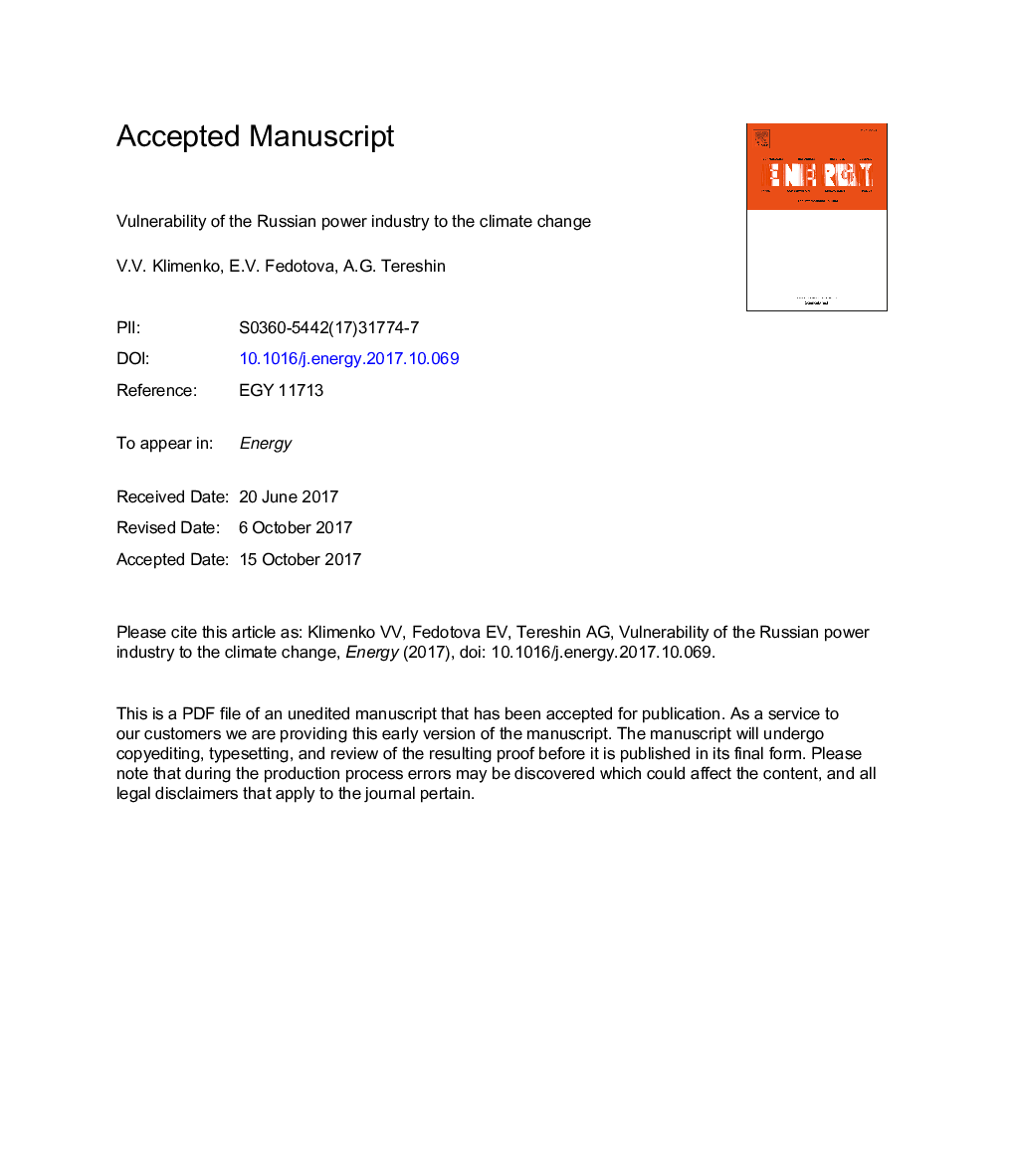| Article ID | Journal | Published Year | Pages | File Type |
|---|---|---|---|---|
| 8072575 | Energy | 2018 | 16 Pages |
Abstract
Assessment of the climate-related impacts on energy systems usually implies regression approaches. That restricts generalization of the published results for the regions which are not covered with detailed research yet. The climate change impacts on the Russian power industry were for the first time quantified in a systematic way. A robust physically-based simulation approach was used to simulate a response of the steam and gas turbines performance to the climate warming. It was shown that an increase of the air temperature deteriorates performance of thermal and nuclear power plants across the whole Russia. The power drop of the steam turbines is about 0.2-0.3 and 0.4-0.6 percent per 1âC for thermal and nuclear power plants respectively. That means additional consumption of 3-4 million tce yearly to 2030-2050. However, an integral effect of the climate change on the Russian energy systems remains clearly positive due to the annual fuel savings of about 100 million tce resulting from reduction of the space heating demand. Main negative impacts of the climate change on the Russian power system will be linked to the changes of the operational regimes. Particularly, design and control strategies of the combined-cycle plants should necessarily account for the future changes of the climate conditions.
Keywords
Related Topics
Physical Sciences and Engineering
Energy
Energy (General)
Authors
V.V. Klimenko, E.V. Fedotova, A.G. Tereshin,
